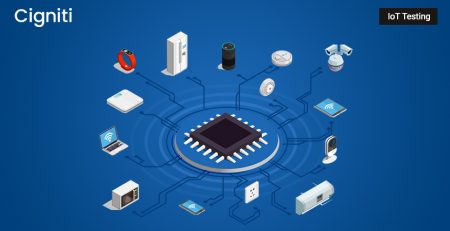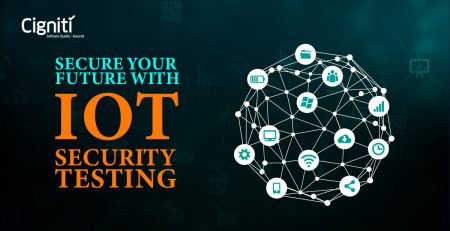Fortifying Our Defenses: Lessons from the Colonial Pipeline Cyberattack for Critical Infrastructure Security
30% of Critical Infrastructure Organizations Will Experience a Security Breach by 2025 – Gartner
Gartner’s insight underscores the critical need for organizations to reassess their cybersecurity approaches and learn from past disasters, such as the Colonial Pipeline security incident. This highlights the importance of increased vigilance and readiness within the energy industry, spurred by earlier wake-up calls.
The Colonial Pipeline Cyber Security Disaster
In April 2021, Colonial Pipeline, a major U.S. pipeline operator, managed a critical 5,500-mile system transporting petroleum products from the Gulf Coast to the East Coast. It was targeted by a ransomware attack, causing significant disruption. DarkSide hackers targeted the company, forcing a network shutdown.
Security experts verified that the attackers breached the Colonial Pipeline network by exploiting an unprotected VPN account password. Businesses commonly rely on virtual private networks (VPNs) for secure, encrypted remote network access, underscoring the substantial risks involved and demanding immediate attention to reinforce cybersecurity measures.
The Consequences
Economic Disruption: Fuel shortages and price surges emerged, affecting businesses reliant on the pipeline for fuel and causing disruptions in transportation networks.
Fuel Shortages and Price Volatility: Widespread gasoline price increases and long queues at gas stations heightened public concerns.
National Security Implications: The ransomware attack underscored the imperative of safeguarding vital systems against such threats.
This event highlighted critical infrastructure’s vulnerability and the essential link to the broader economy, emphasizing the urgency of bolstering cybersecurity for energy infrastructure. It prompted governments to intensify cybersecurity regulations and international collaboration to combat cybercrime effectively.
Both ransomware and OT infrastructure cyberattacks have persisted and, according to numerous reports, even escalated in frequency following the Colonial Pipeline incident.
Gartner says ransomware attacks have surged by 400% since the May 2021 Colonial Pipeline incident, affecting clients who’ve experienced attacks and subsequent recovery efforts. On the contrary, ‘The Cost of a Data Breach Report – 2023’ reveals that the energy industry faces an average data breach cost of $4.65 million, highlighting ongoing challenges in protecting sensitive information.
The cyber-attack has imparted valuable lessons, offering insights for oil & gas and other energy firms to fortify their defenses. It underscores the necessity of proactive measures to safeguard critical infrastructure and emphasizes the need for robust cybersecurity strategies to protect against evolving threats.
1) Strengthening Cybersecurity Measures:
This includes the implementation of multi-layered security protocols, regular updates for software and systems, and comprehensive vulnerability assessments to reduce risks and prevent similar attacks.
2) Embracing Zero-Trust Architectures
As per research, login credentials are prime targets for cybercriminals. Security teams must prioritize zero-trust authentication to enhance protection against unauthorized access using compromised credentials. To safeguard against similar attacks, organizations should adopt a comprehensive zero-trust approach, extending access controls beyond conventional network security to cover the entire digital journey lifecycle, ensuring robust security at every stage.
3) Segmenting the Network
Effective network segmentation involves maintaining a clear divide between operational technology (OT) and information technology (IT) networks, with exceptions only when required. Rigorous control and monitoring are essential to minimize risks preventing the potential spread of attacks within the environment. In industrial settings, the isolation of OT networks from IT networks is crucial for heightened security.
4) Collaborative Efforts: Public-Private Partnerships:
Collaboration between the public and private sectors remains paramount to combat cyber threats. Governments, industry leaders, and cybersecurity experts must collaborate to exchange threat intelligence, establish best practices, and create frameworks that facilitate information sharing and swift incident response.
5) Employee Training and Education:
Human error often plays a pivotal role in cyber-attacks. Organizations must prioritize employee training and education in cybersecurity best practices, encompassing the recognition of phishing attempts, the use of robust passwords, and adherence to secure browsing habits. Regular training sessions and simulated phishing exercises substantially enhance overall security readiness.
6) Incident Response Planning and Testing:
Creating and routinely testing incident response plans is crucial in minimizing the impact of cyberattacks. Organizations should form dedicated incident response teams, conduct tabletop exercises, and simulate real-world scenarios to pinpoint weaknesses and enhance response efficiency. Proactive preparation enables organizations to mitigate the repercussions of cyber incidents effectively.
Why Cigniti?
Cigniti is attuned to the evolving testing requirements of the Energy and Utilities (E&U) sector, which is undergoing a significant transformation in how it consumes, produces, and distributes energy. With a proven track record of delivering comprehensive testing services to E&U organizations in the US, UK, and Europe, Cigniti offers extensive test coverage, accelerates testing processes, and employs adaptable test frameworks. Our services go beyond conventional QA, encompassing change management, compliance programs, and executive monitoring, fortifying the global E&U ecosystem with precise and high-quality QA solutions. This enhances operational efficiency and addresses key business challenges across production, transportation, distribution, consumption measurement, and billing within the industry.
Need help? Contact our Energy and Utility Industry security experts to learn more about the challenges and solutions of Security in the E&U domain.





Leave a Reply